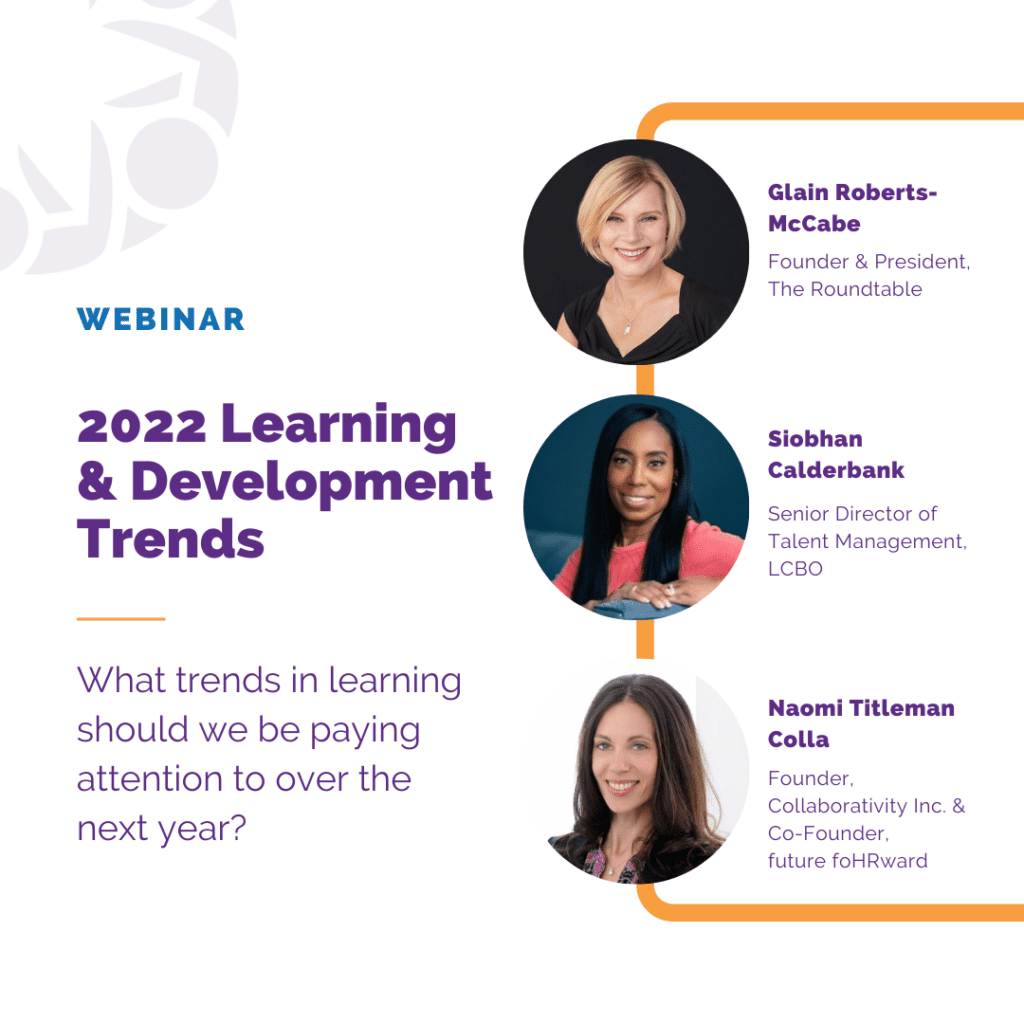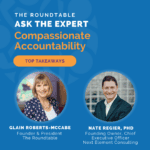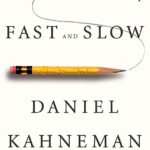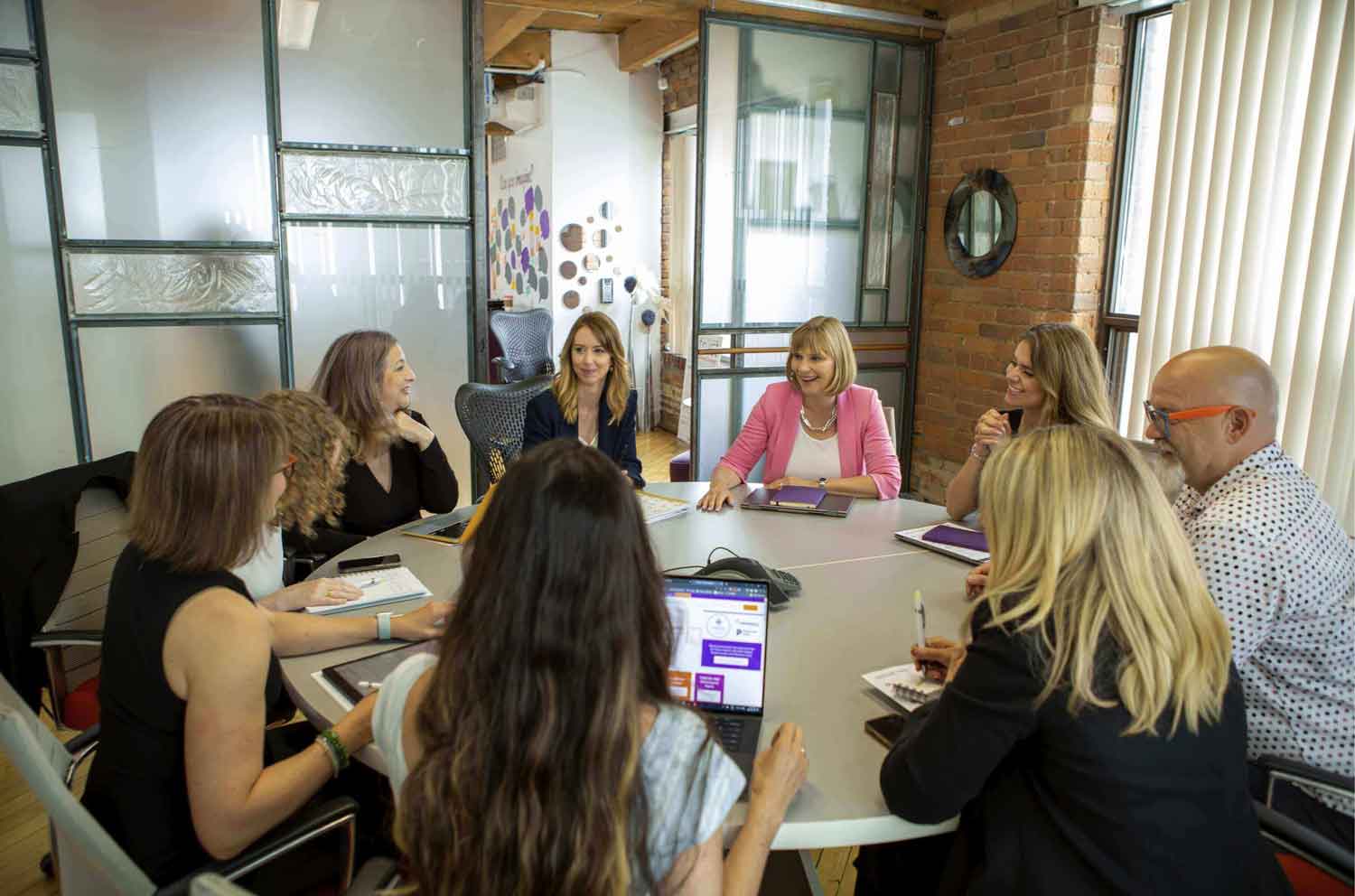Earlier this month, I sat down with Siobhan Calderbank, Senior Director of Talent Management at the LCBO and Naomi Titleman Colla, Founder of Collaborativity Inc. and Co-Founder of future foHRward for a lively discussion on what trends in learning we need to be paying attention to over the next year. If you missed it, you can watch the complete webinar here.
Here are some of my key takeaways from the conversation.
The Future of Learning Is Integrated
Naomi Titleman Colla shared an absolutely wonderful quote by Simon Brown, Chief Learning Officer at Novartis.
“Continuous learning organizations are blurring the boundaries between what is learning and what is work and creating the environment, whether that’s cultural, technological, or mindset that people are actually constantly learning and that the work becomes learning now.”
Here at The Roundtable, we have an expression with the group coaching work that we do that if you’re not moving something off your desk when you’re in the session, we’re doing something wrong. Too many L&D initiatives are sessions that cut into the very busy days of leaders and high-potentials. Learning cannot be an event that you go to, it needs to be a part of your flow, part of your everyday routine.
Siobhan Calderbank challenged L&D pros to keep these two things in mind: How can you help your talent get from Point A to Point B, knowing that they’re likely going to resist and how do L&D entice leaders from a marketing perspective to make them want to learn the desired skill or behaviour? And, lastly, Naomi pointed out that a growth mindset and being very broad in what we mean by “learning” is really critical for moving forward in this crazy volatile, uncertain, complex and ambiguous world.
Hyper-Personalization at Scale
Siobhan noted that we really have to think about creating learning programs from an employee engagement standpoint. From the moment our people start with us in our organization to moment they leave, we need keep them happy and engaged. This means a “one size fits all” approach won’t work. L&D leaders must look for tools and opportunities that curate customized content. (And, this is where we may see more examples of AI popping up in the workplace.)
Executive coaching, while it has its place, is not scalable. Organizations will have to shift from individual learning to a collective learning model that allows for both group insights as well as individual “aha” experiences.
In the year (and years!) ahead, L&D will be exploring how to create a bespoke learning environment that allows flexibility and can change as the needs of the business evolved. As organizations continue to change at a faster and faster pace, just-in-time learning aligned to the requirements of your talent will be critical.
Key Leadership Skills of the Future
This topic bubbled up a few times throughout our conversation, and the word “empathy” was mentioned more times than I have fingers and toes. However, empathy, and empathetic leadership, is inextricably tied to company culture. People need to feel safe to express themselves, to raise their voice and to contribute. Psychological safety and inclusion are two sides of the same coin.
The group also discussed the need for agility, which means that we need to boost critical thinking skills, strategic thinking skills and cooperation across departments.
If you’re curious about how The Roundtable can help your organization develop an inclusive culture where leaders can support each other through coaching and mentoring, let’s start a conversation. And, be sure to download our 2022 L&D Trends Report for more insights into the issues affecting L&D professionals in the year ahead.




